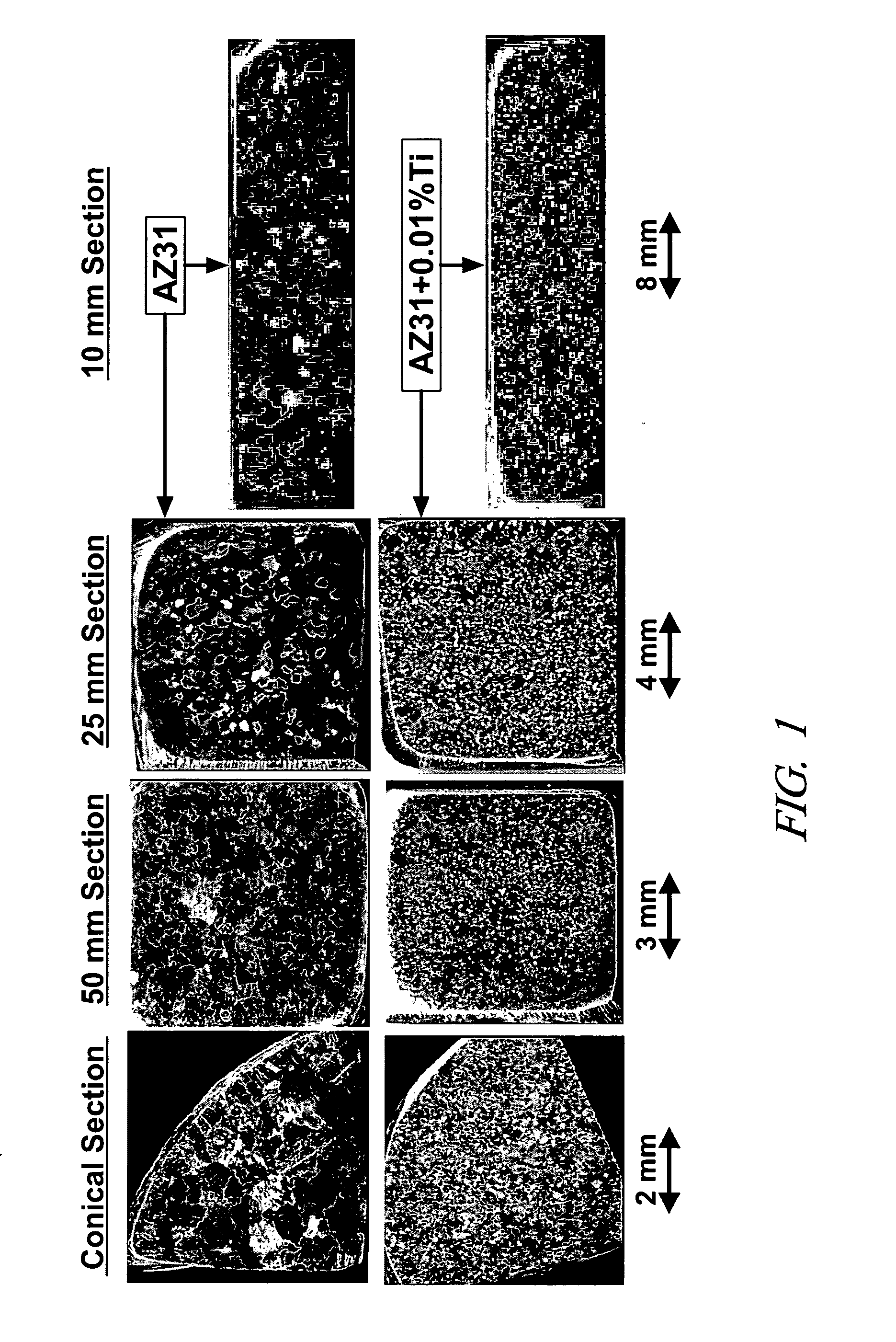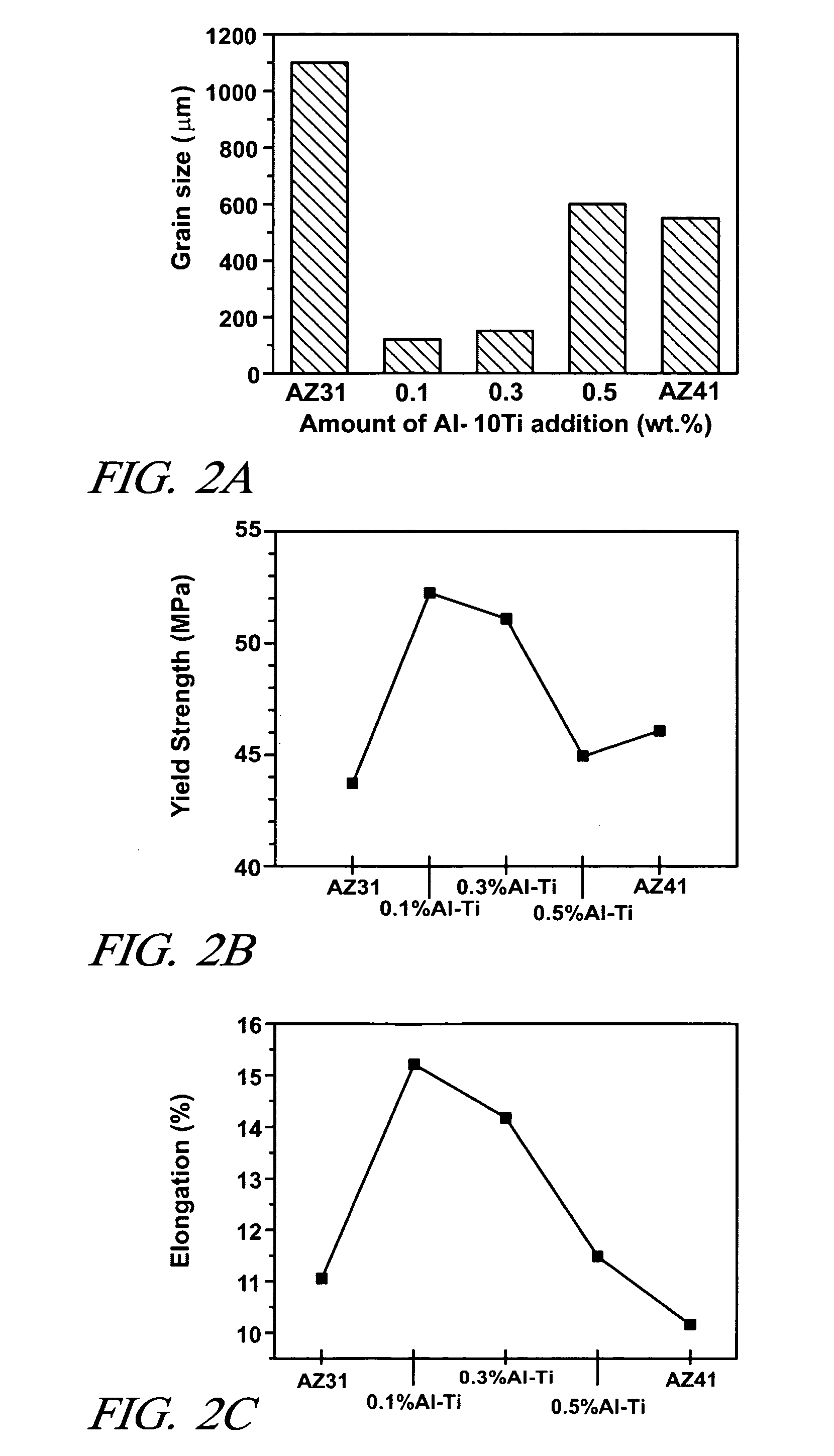Magnesium grain-refining using titanium
a technology of titanium and magnesium grain, applied in the field of magnesium grain refining using titanium, to achieve the effect of improving the tensile yield strength and elongation of the cast product, reducing or refining the average grain siz
- Summary
- Abstract
- Description
- Claims
- Application Information
AI Technical Summary
Benefits of technology
Problems solved by technology
Method used
Image
Examples
Embodiment Construction
[0012] Commercial magnesium alloy systems adapted for sand and permanent mold castings include magnesium-aluminum-manganese (AM), magnesium-aluminum-zinc (AZ), magnesium-rare earth-zirconium (EK, EZ, and ZE), magnesium-zinc-zirconium (ZK), and magnesium-thorium-zirconium (HK, HZ, and ZH). AZ and AM alloys are also used in high-pressure die casting applications. Other die cast alloys include magnesium-aluminum-silicon (AS) magnesium-aluminum-strontium (AJ), magnesium-aluminum-rare earth (AE). Compositional specifications, temper specifications, and physical properties for alloy members of these systems are available from commercial sources and technical references. Wrought magnesium alloys, produced as bars, billets, shapes, wire, sheet, plate, and forgings, are often made using members of the AZ system, such as AZ31 B, C having a typical nominal composition, by weight, of 3.0% aluminum, 0.3% manganese, 1% zinc, and the balance magnesium. Extruded bars, rods, tubes, and the like, may...
PUM
| Property | Measurement | Unit |
|---|---|---|
| height | aaaaa | aaaaa |
| diameter | aaaaa | aaaaa |
| diameter | aaaaa | aaaaa |
Abstract
Description
Claims
Application Information
 Login to View More
Login to View More - R&D
- Intellectual Property
- Life Sciences
- Materials
- Tech Scout
- Unparalleled Data Quality
- Higher Quality Content
- 60% Fewer Hallucinations
Browse by: Latest US Patents, China's latest patents, Technical Efficacy Thesaurus, Application Domain, Technology Topic, Popular Technical Reports.
© 2025 PatSnap. All rights reserved.Legal|Privacy policy|Modern Slavery Act Transparency Statement|Sitemap|About US| Contact US: help@patsnap.com



